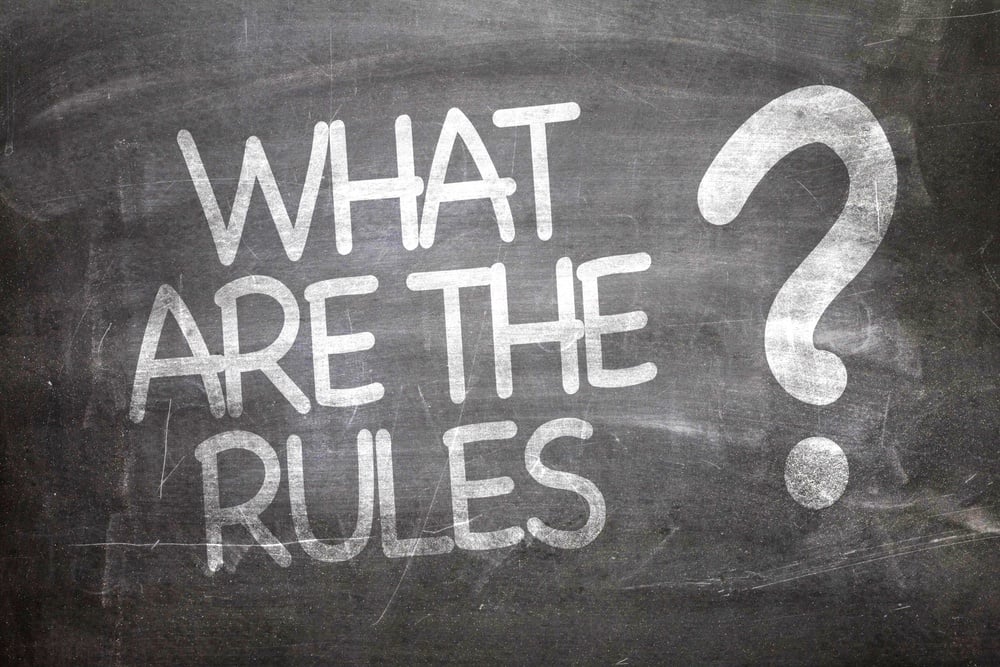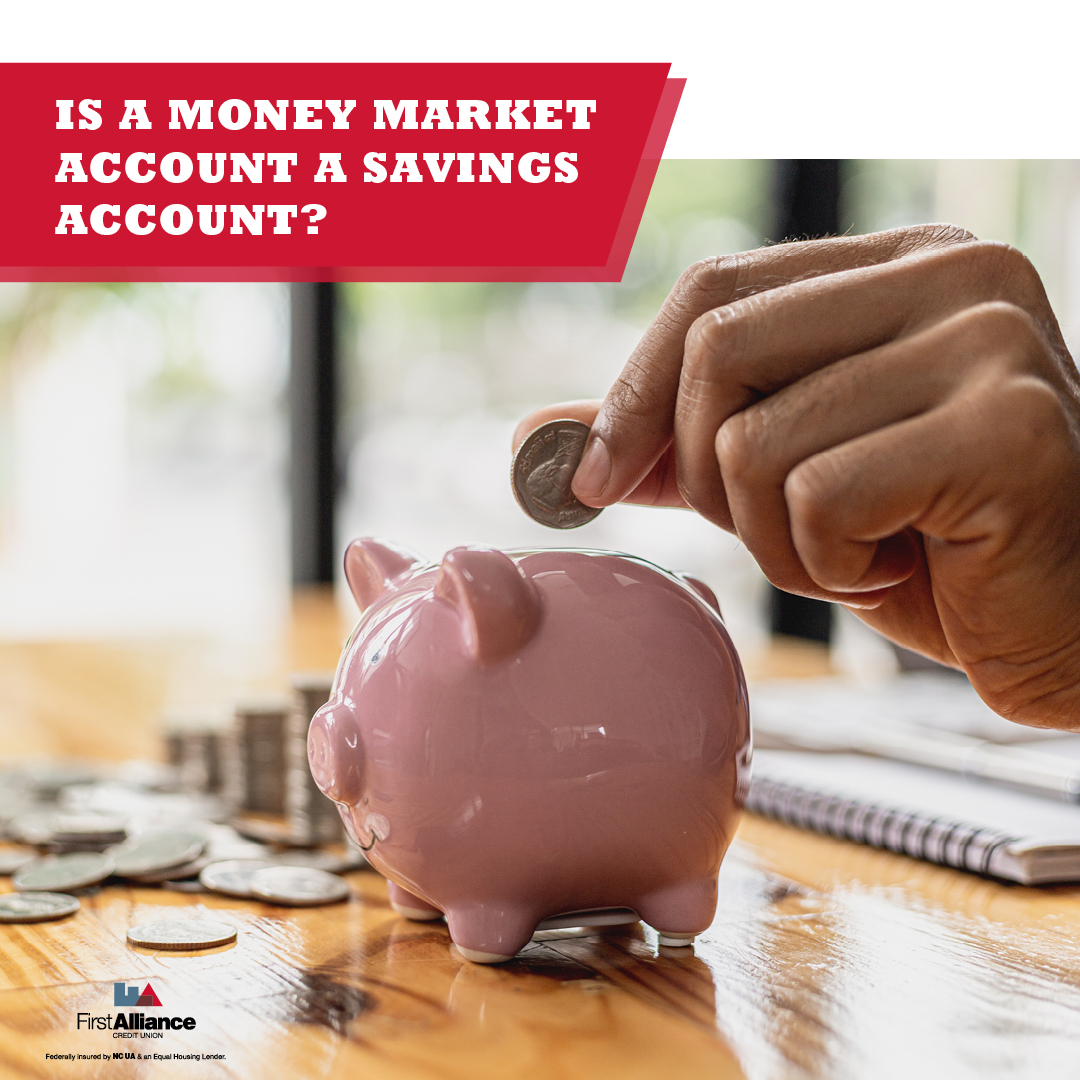Why does a Money Market Account Have a Minimum Balance?
Money market accounts have some significant advantages over a traditional savings account, including a higher interest rate that makes your money...
5 min read
 Kamel LoveJoy
:
Sep 4, 2025 5:00:00 AM
Kamel LoveJoy
:
Sep 4, 2025 5:00:00 AM

You want savings that grow and stay within reach. You also want simple and safe. A money market account fits that plan. It is a savings account built for better earning potential and easy access you can use in real life.
Jordan is building a three-month emergency fund. He opens a money market account, names it "Emergency Only", and turns on an automatic payday transfer. After a few months, his balance is up. When his car needs a repair, he moves what he needs to checking and pays cash. No credit card. No panic. His plan stays on track and his savings keep growing.

A money market account is a type of savings account at a credit union or bank. At First Alliance Credit Union your deposits are insured by the National Credit Union Administration (NCUA) up to legal limits. That means your principal is protected while you earn on your balance. Many money market accounts also allow limited check or debit access, which keeps your money close at hand when you need it.
People often confuse money market accounts with money market funds. These are not the same. Money market funds are investments that hold short term securities and are not NCUA insured. They can change with the market and behave differently across different funds. A money market account is a deposit account with insurance. It is designed for saving, not market investing.
Before you open one, it helps to know what happens day to day. You deposit money, and the account pays dividends that may compound over time. Access and rules vary by institution, so reading your account terms is the best way to get the most from it. You can usually move money to checking in online or mobile banking when you need to pay bills or cover a surprise.
Earnings: Your balance earns dividends that can grow through compounding. The compounding schedule depends on the account.
Access: Transfers to checking are simple. Some accounts include limited check or debit access, and institutions may place monthly withdrawal limits.
Rules: Balance tiers, minimums, and fee rules affect how much you earn and how you avoid charges.

A basic savings account is perfect for getting started. As your balance grows, a money market account can help your savings work a little harder while staying easy to reach. You do not lock up your money like you would with a Certificate of Deposit. You keep control and can add deposits any time. This is why many people use a money market account as the main home for an emergency fund or for near term goals.
Emergency fund hub: Keep three to six months of expenses in a protected account that still earns.
Short term goals: Save for a car, a move, travel, or medical costs within the next one to three years.
Parking spot for cash: Hold cash between big steps so you avoid spending it and still earn.
Choosing the right tool is easier when you match it to your timeline. Short goals need easy access. Longer goals may fit tools that reward patience. A money market account sits in the middle and keeps your plan flexible.
Basic savings account: Great for starting out, building the first few hundred dollars, and learning consistent habits. It is simple, has few rules, and connects to checking.
Money market account: Good for larger balances you want to grow while staying within reach. It can pay more than a basic savings account and still let you transfer quickly when needed.
Certificate of Deposit: Helpful when you have money you will not need until the end of a set term. You usually get a predictable route to growth but less access during the term.
It is normal to wonder why one account seems to grow faster than another. The answer comes down to a few building blocks that work the same everywhere. Use these ideas to compare accounts clearly without quoting or chasing rates.
First, look at the published APY. This is the annual percentage yield and it already includes the effect of compounding. Next, check how often the account compounds and whether it uses balance tiers that reward higher balances. Finally, read the rules for any monthly fees and minimums. Keeping your account in good standing protects your progress.
APY and compounding: APY shows your potential growth over a year. Compounding tells you how often interest is added to your balance.
Balance tiers: Some accounts pay more as your balance grows. Steady deposits can move you into a higher tier over time.
Fees and minimums: A monthly fee can reduce earnings. Learn how to avoid it so your money keeps working.
Our Personal Money Market is built for everyday savers who want steady growth and quick access. You earn dividends on your balance, can make unlimited deposits, and move money using Online and Mobile Banking. A monthly fee may apply if the balance falls below the account minimum, so it helps to set a transfer you can maintain each payday and keep the account above that level. If your savings grows much larger in the future, we can review advanced options with you one on one.
Staying motivated is easier when you can picture your future balance. Pick a goal amount and a date. Choose a transfer you can keep up with. Then test a few timelines to see how compounding helps. You will be surprised how quickly small, steady moves add up.

Getting started does not need to be complicated. Open your account online or with a team member. Give the account a name that matches your goal so you remember why you are saving. Turn on automatic transfers from checking for each payday. Review your progress monthly and add extra when you can. If life happens, move what you need to checking and keep going.
Open your account: Choose the Personal Money Market to begin. It is built for everyday saving and fits most starter emergency funds.
Automate your deposit: Pick a transfer amount that fits your budget, even if it is small. Consistency is what grows the balance.
Review and adjust: Check your balance each month. If you can raise your transfer, do it. If you need to pause for a month, that is okay. Start again the next payday.
A few simple habits can protect your progress. The biggest mistake is treating a money market account like a spending account. Another common mistake is ignoring the rules that help you avoid monthly fees. The last mistake is letting cash pile up in checking where it does not grow. Move extra to your money market account so compounding can work for you.
Spending from savings too often: Keep daily purchases in checking. Use your money market account for real goals and true emergencies.
Missing simple rules: Learn the minimums and fee rules so earnings are not reduced. A quick read now saves you later.
Letting extra cash sit in checking: When your checking balance rises above what you need, move the extra to your money market account.
Many savers ask the same questions when they first hear about money market accounts. These answers keep things simple. If you want a deeper dive or a walk through, our team is happy to help you one on one and map the account to your budget.
Are money market accounts safe?
Yes. At a credit union, deposits are insured by the NCUA up to legal limits. Your principal stays protected while you earn.
Can I start small?
Yes. Begin with what you can afford. If the account uses balance tiers, steady deposits can help you move into a higher tier later.
Will I lose money?
This is a deposit account, not a market investment like a money market fund. Your balance does not swing with the market. Fees could reduce earnings if you do not meet account rules, so it helps to learn the basics before you start.
How does it work with checking?
Think of checking for daily spending and a money market account for savings. Move money to checking when needed and keep the rest growing.
A money market account is a clear, practical step for savers who want safety, growth, and fast access in one place. It fits emergency funds and near term goals and works smoothly with checking. At First Alliance Credit Union you can start with the Personal Money Market, set up automatic transfers, and manage everything in the app. Keep it simple. Keep it steady. Let compounding do the heavy lifting while you live your life. You want savings that grow and stay within reach. You want simple, safe, and stress free. A money market account fits that plan. It is a savings account with better earning power and easy access when life happens.

Money market accounts have some significant advantages over a traditional savings account, including a higher interest rate that makes your money...

So you’ve finally made up your mind. You’ve read about the benefits of money market accounts, and you are ready to pull the trigger and get a money...

Here’s a fun challenge–visit the savings account page of a credit union’s website, including First Alliance Credit Union, and look for find money...